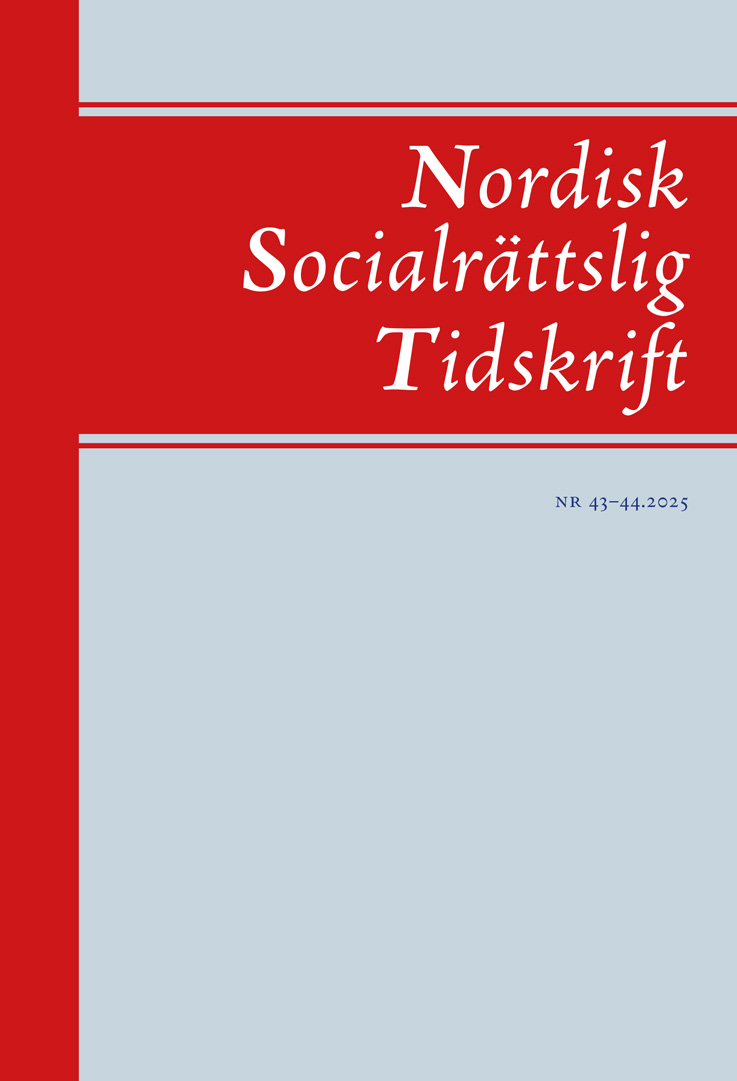Att bedöma arbetsförmåga vid psykisk ohälsa – när det komplexa blir ännu mer komplext
Published in Nordisk socialrättslig tidskrift nr 43–44.2025, August 2025 s. 41–80
Sickness absence due to psychiatric diagnoses, particularly stress-related mental health conditions, has become the most common cause of sick leave in Sweden since 2014. These diagnoses are linked to the longest durations of absence and the highest risk of not returning to work, with women being overrepresented. Psychiatric disorders now account for a third of new and half of all ongoing sick leave cases. To receive sickness benefits, a person’s work capacity must be reduced by at least 25% due to illness. However, assessing the extent of this reduction, particularly for psychiatric conditions, is challenging due to their multifactorial nature, including biological, psychological, and social factors. These complexities often lead to inconsistent evaluations of work capacity. This article analyses the legal framework for assessing work capacity in cases of psychiatric illness, combining traditional legal sources with research and guidelines from relevant authorities to explore the specific challenges involved in these assessments.
Keywords: socialförsäkring, sjukförsäkring, arbetsförmåga, arbetsförmågebedömning, psykisk ohälsa
More articles by the same author(s)
JO 2021/22 s. 57 – Arbetsmiljöverket, munskydden och objektivitetsprincipen
https://doi.org/10.53292/c42237cc.6ae6a22e
Published in Förvaltningsrättslig tidskrift 2021 5, December 2021 s. 945–958

